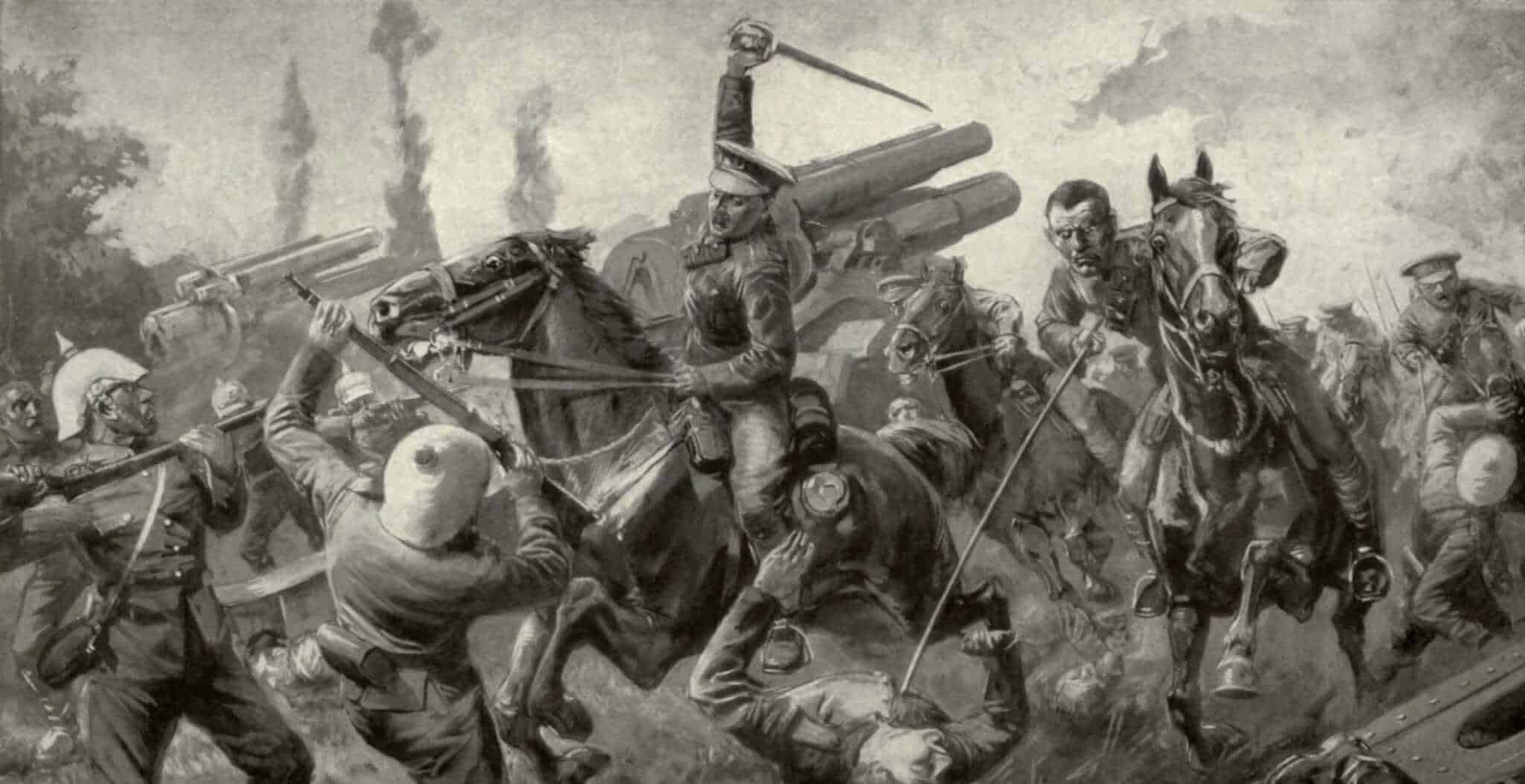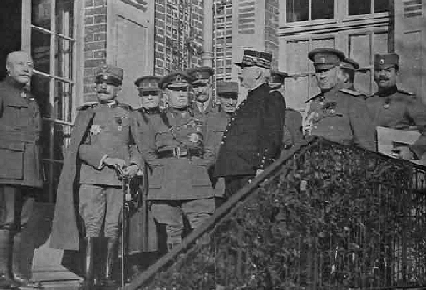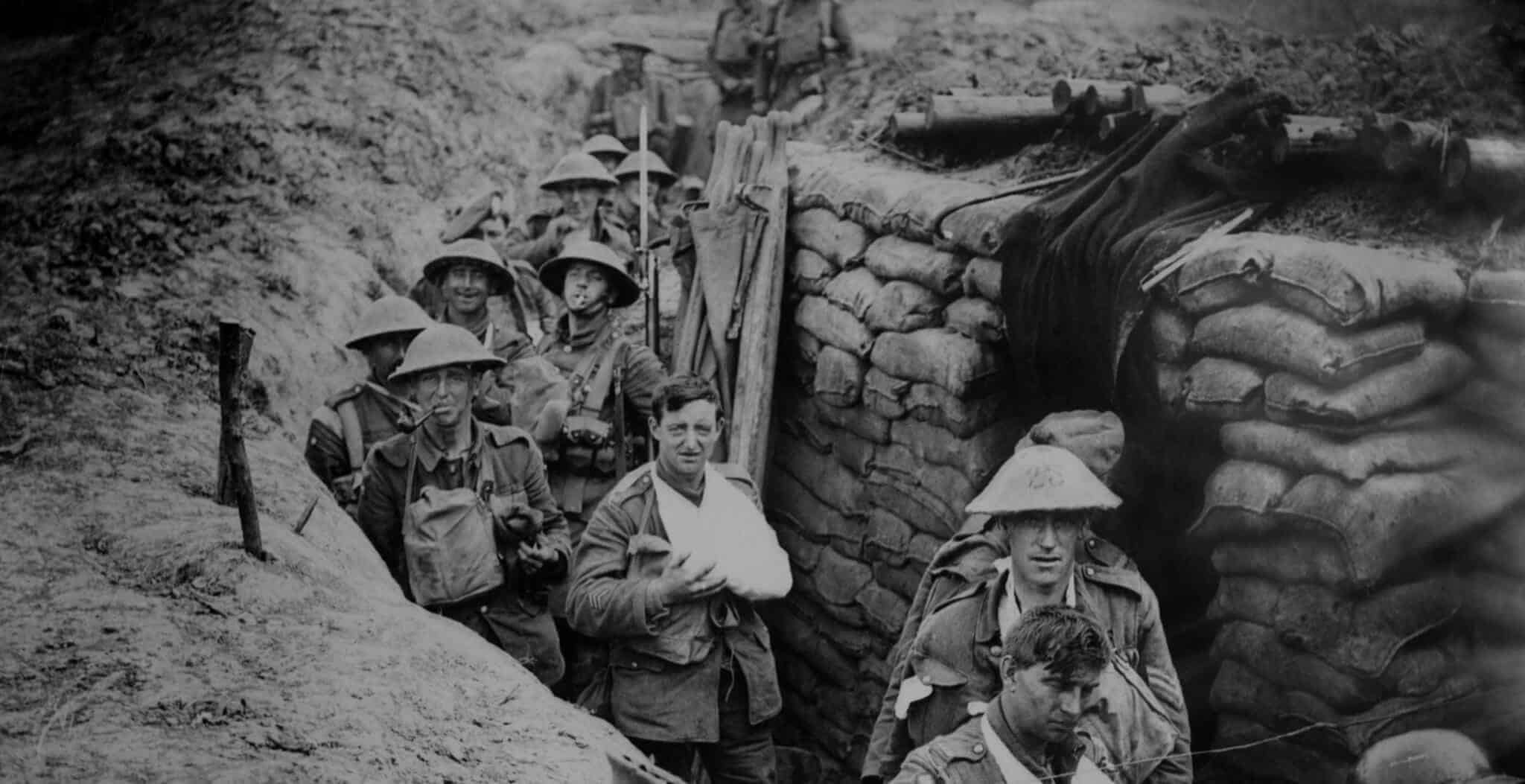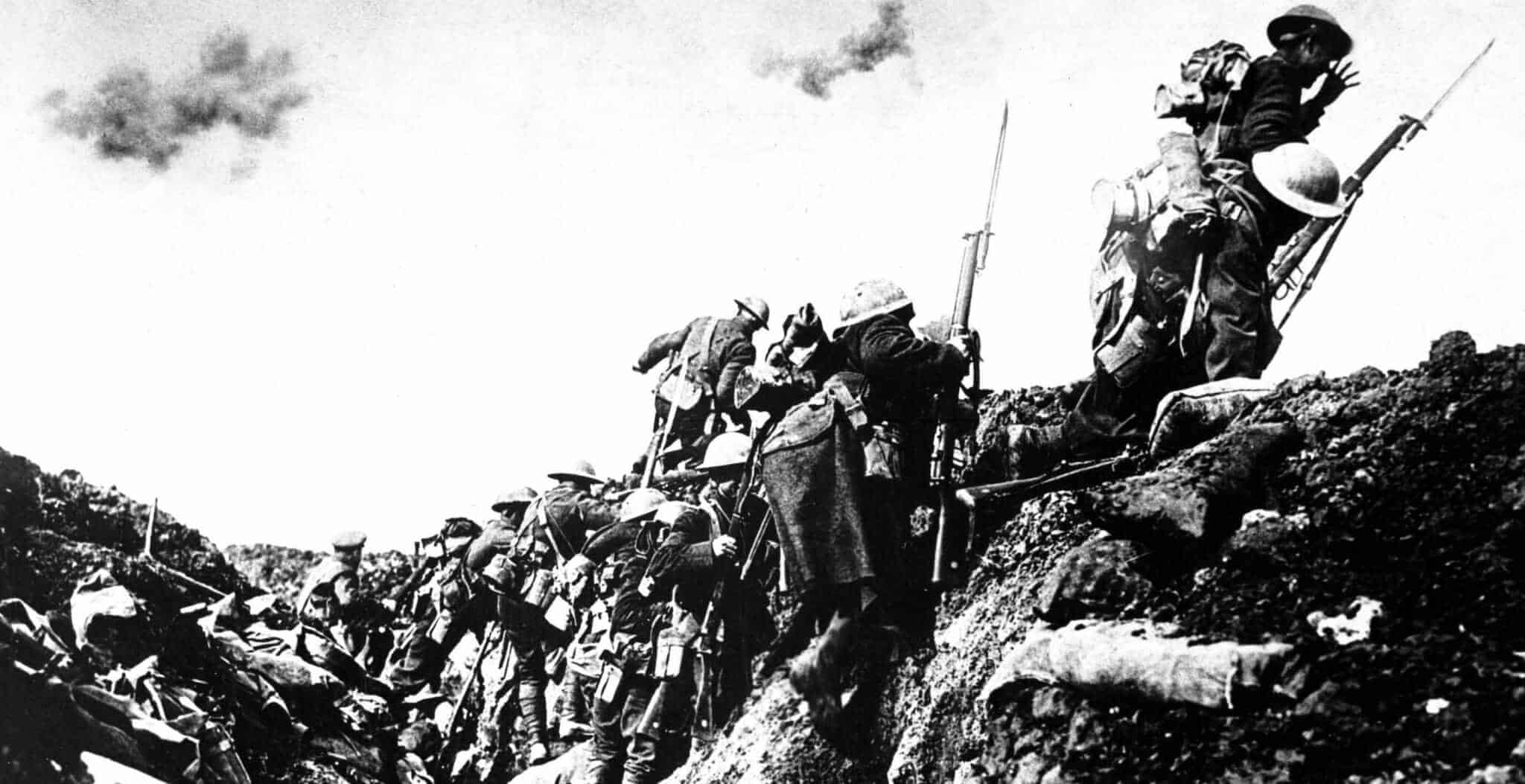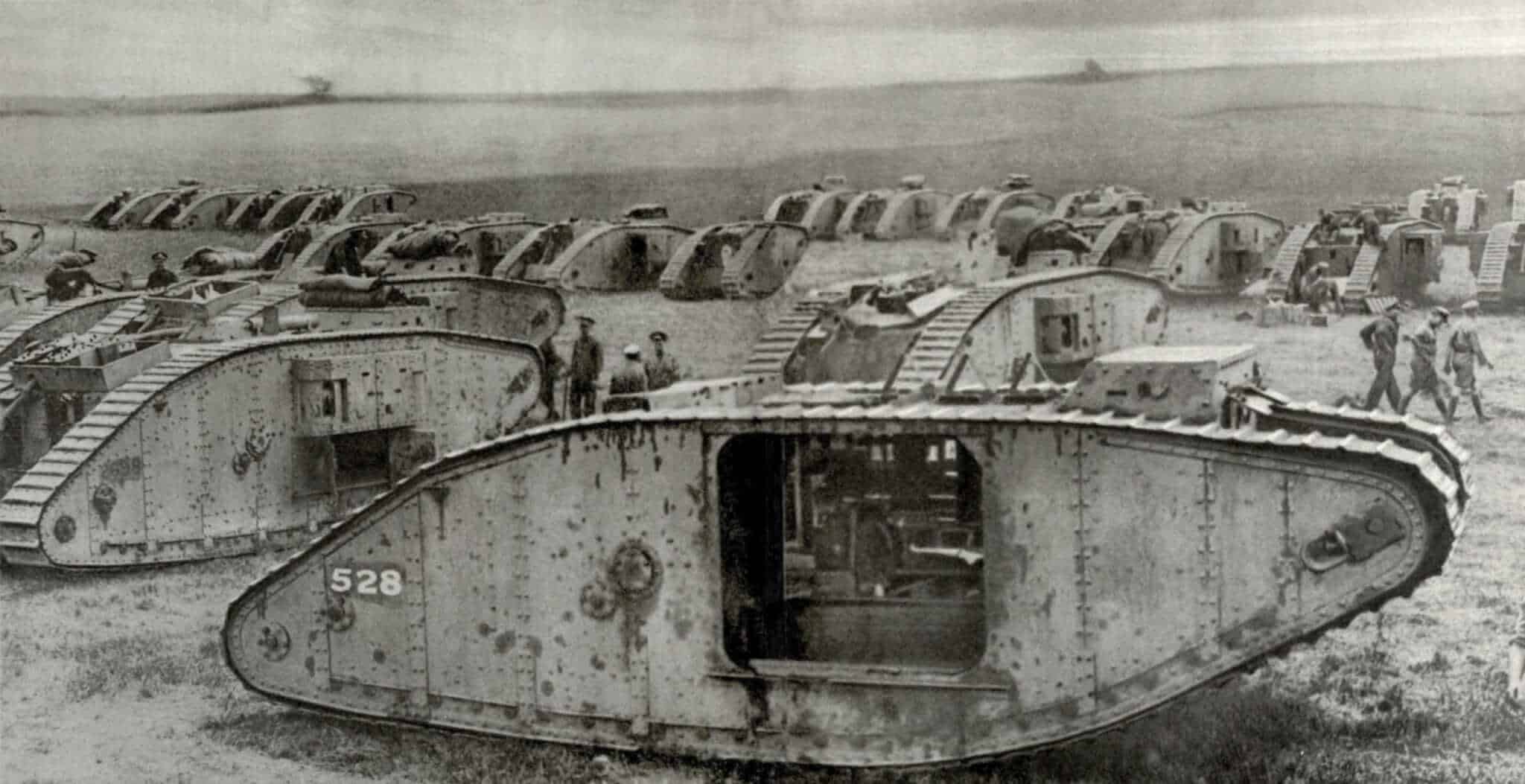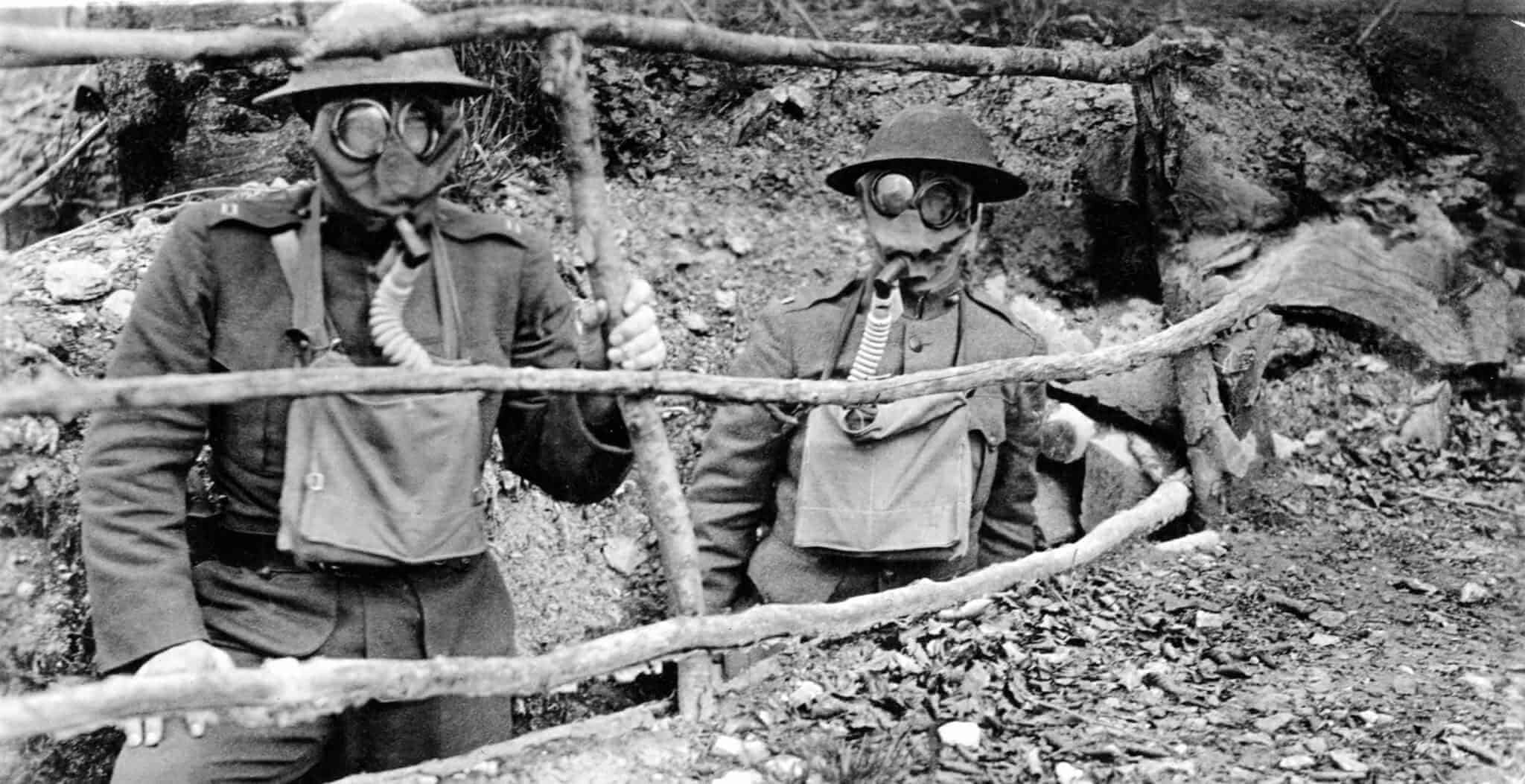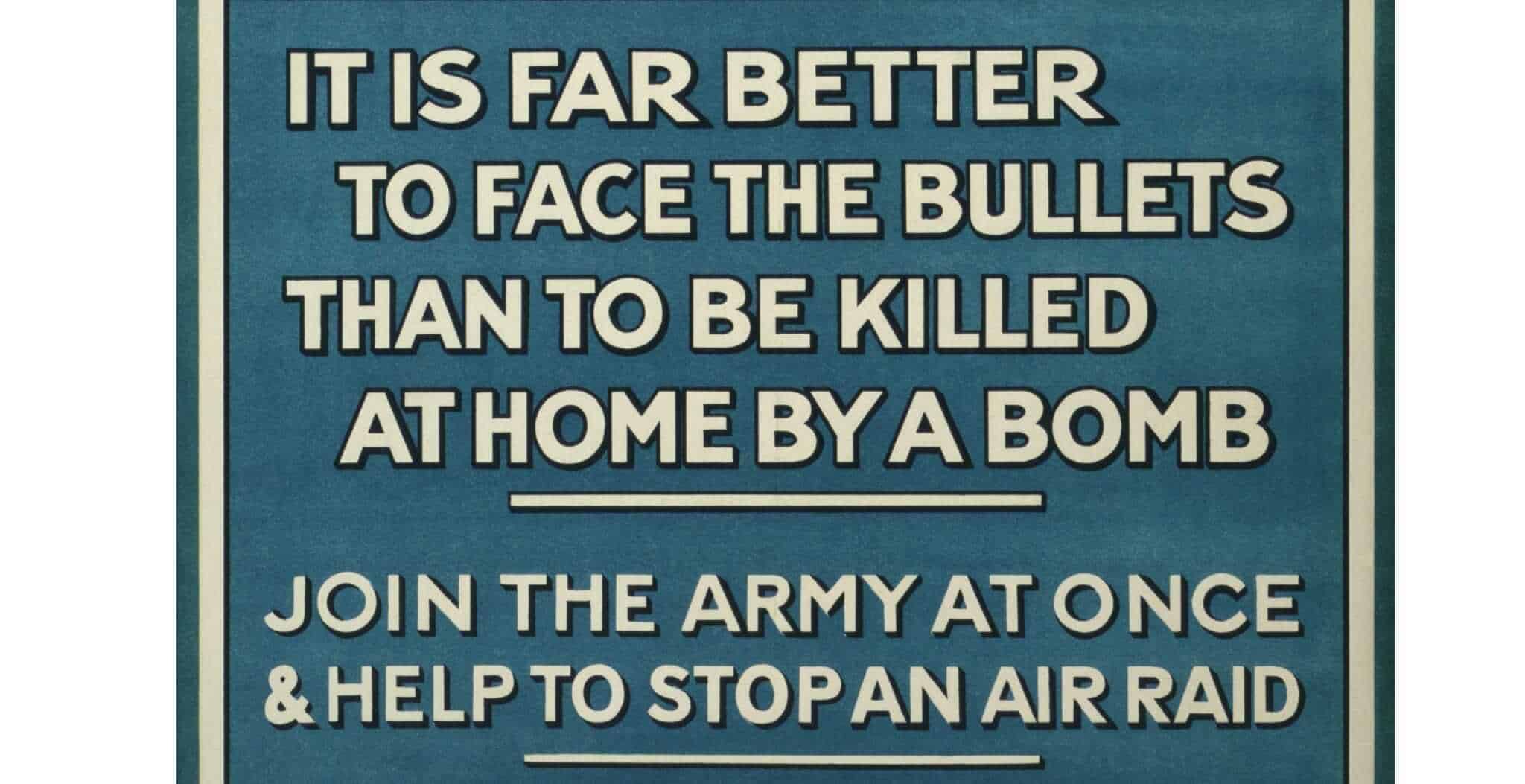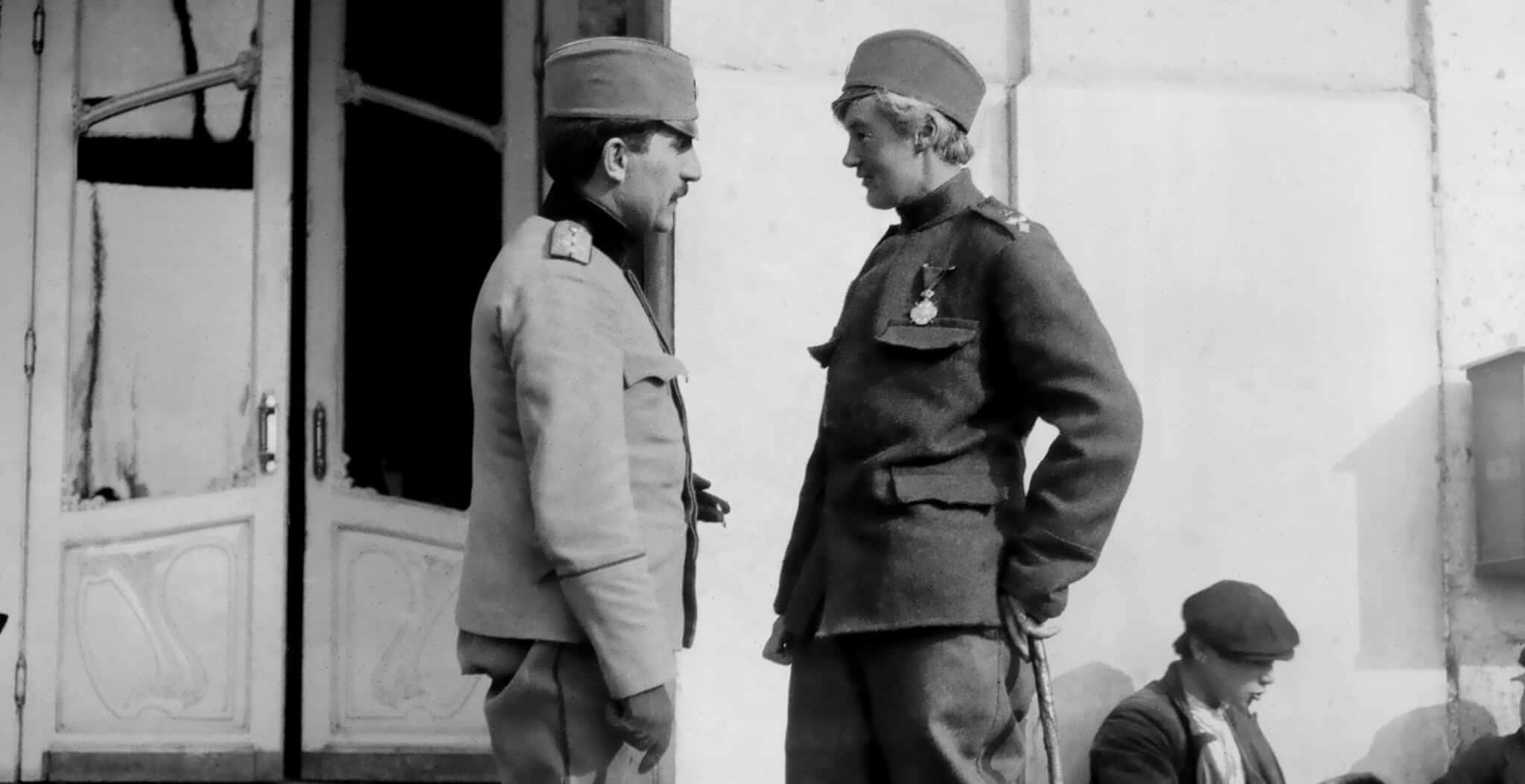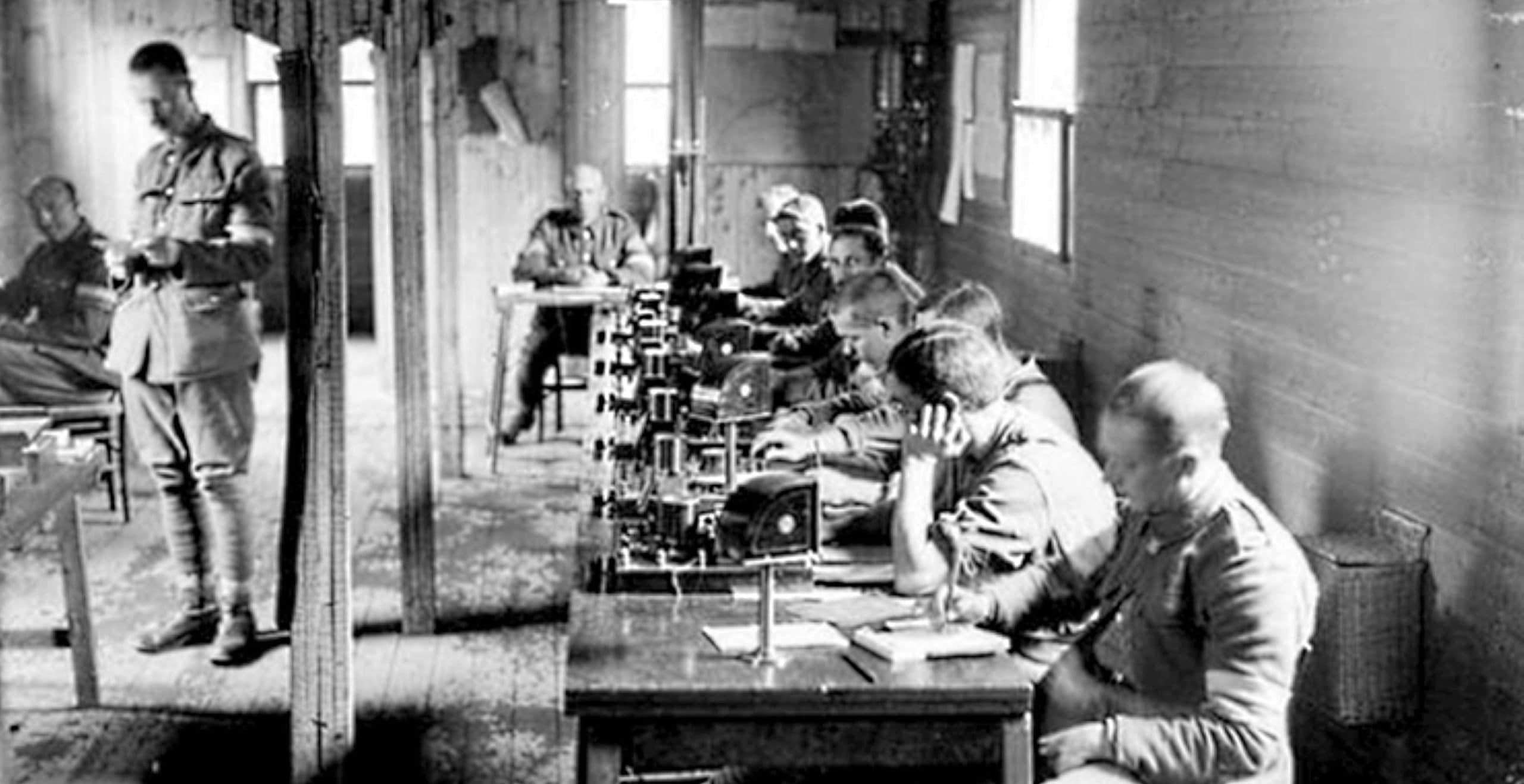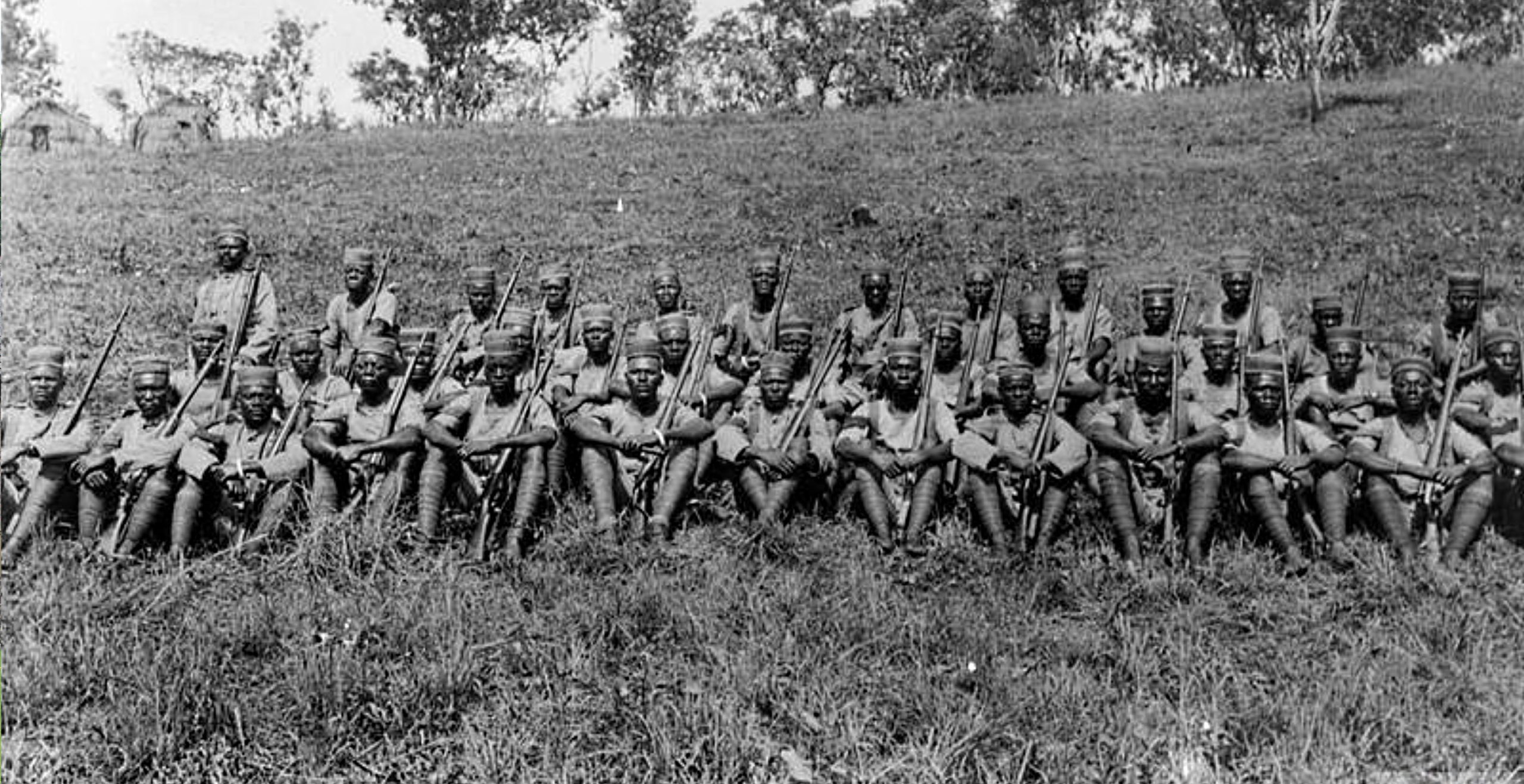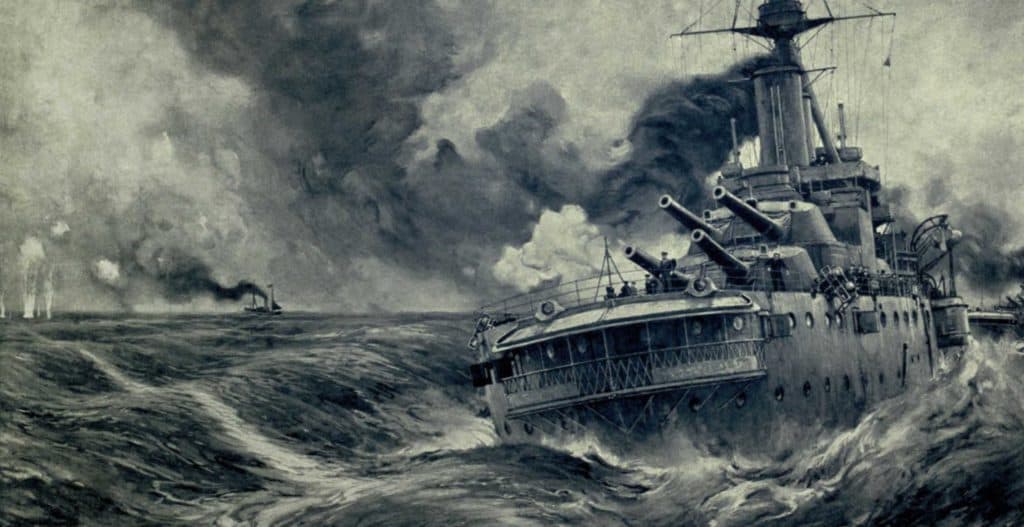Important events of 1914, the first year of the First World War, including the assassination of Archduke Franz Ferdinand.
| 28 June | Assassination of Franz Ferdinand, heir to the Austria-Hungary throne. Archduke Ferdinand and his wife had been inspecting Austro-Hungarian troops in occupied Sarajevo. A Serbian nationalist student, Gavrilo Princip, shot the couple when their open topped car stopped on its way out of town. | |
| 5 July | Kaiser William II promised German support for Austria against Serbia. | |
| 28 July | Blaming the Serbian government for the assassinations, Emperor Franz Joseph of Austria-Hungary declares war on Serbia and its ally Russia. Through its alliance with France, Russia calls on the French to mobilise her armed forces. | |
| 1 Aug | The official outbreak of World War I as Germany declares war on Russia. | |
| 3 Aug | Germany declares war on France, its troops march into Belgium implementing a pre-planned (Schlieffen) strategy, intended to quickly defeat the French. British foreign secretary, Sir Edward Grey, demands that Germany withdraw from neutral Belgium. | |
| 4 Aug | Germany fails to withdraw its forces from Belgium and so Britain declares war on Germany and Austria-Hungary. Canada joins the war. President Woodrow Wilson declares American neutrality. | |
| 7 Aug | The British Expeditionary Force (BEF) starts to land in France to assist the French and Belgians in stopping the German offensive. Although much smaller than the French Army, the BEF are all seasoned professional volunteers, rather than raw conscripts. | |
| 14 Aug | The Battle of the Frontiers begins. French and German forces collide along the eastern borders of France and southern Belgium. | |
|
|
||
| Late Aug | Battle of Tannenberg. The Russian army invades Prussia. The Germans use their railway system to surround the Russians and inflict heavy causalities. Tens of thousands of Russians are killed and 125,000 are taken prisoner. | |
| 23 Aug | 70,000 soldiers of the BEF face twice that number of Germans at the Battle of Mons. During their first encounter of the war, the massively outnumbered BEF seize the day. Despite this success, they are forced to fall back to cover a retreating French Fifth Army.
Through her alliance with Britain, Japan declares war on Germany and attacks the German colony of Tsingtau in China. |
|
| Aug | British and French forces invade and occupy Togoland, a German protectorate in West Africa. | |
| Sept | After defeating the Russian Second Army at Tannenburg, the Germans confront the Russian First Army at the Battle of Mausurian Lakes. Although not an outright victory for Germany, over 100,000 Russians are captured. | |
| 11 – 21 Sept | Australian forces occupy German New Guinea. | |
| 13 Sept | South African troops invade German South-West Africa. | |
| 19 Oct – 22 Nov | The First Battle of Ypres, the last major battle of the first year of World War I, ends the Race to the Sea. The Germans are prevented from reaching Calais and Dunkirk, thus cutting off the British Army’s supply lines. Part of the price paid for the victory is the complete destruction of The Old Contemptibles – the highly experienced and professional British regular army will be replaced by fresh reserves of conscripts. | |
| 29 Oct | Turkey enters the war on Germany’s side. | |
| 8 Dec | Battle of the Falkland Islands. Von Spee’s German cruiser squadron is defeated by the Royal Navy. More than 2,000 German sailors are either killed or drown in the encounter, including Admiral Spee and his two sons. | |
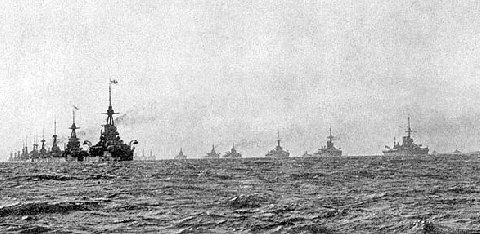
| 16 Dec | The German fleet shells Scarborough, Hartlepool and Whitby on England’s east coast; more than 700 people are either killed or injured. The resulting public outrage is directed towards the German navy for the killing of civilians and against the Royal Navy for its failure to prevent the raid in the first place. | |
| 24 – 25 Dec | An unofficial Christmas truce is declared between large numbers of warring soldiers along the Western Front. | |
| First year of the war | The German advance into France is met by fierce Belgium resistance; the allies eventually halt the Germans at the River Marne. After advancing from the northern coast of France to the Belgian town of Mons, British troops are finally forced to retreat. The British suffer huge losses at the First Battle of Ypres. All hope of a quick ending to the war disappears as trench warfare starts to dominate the Western Front. |
|
